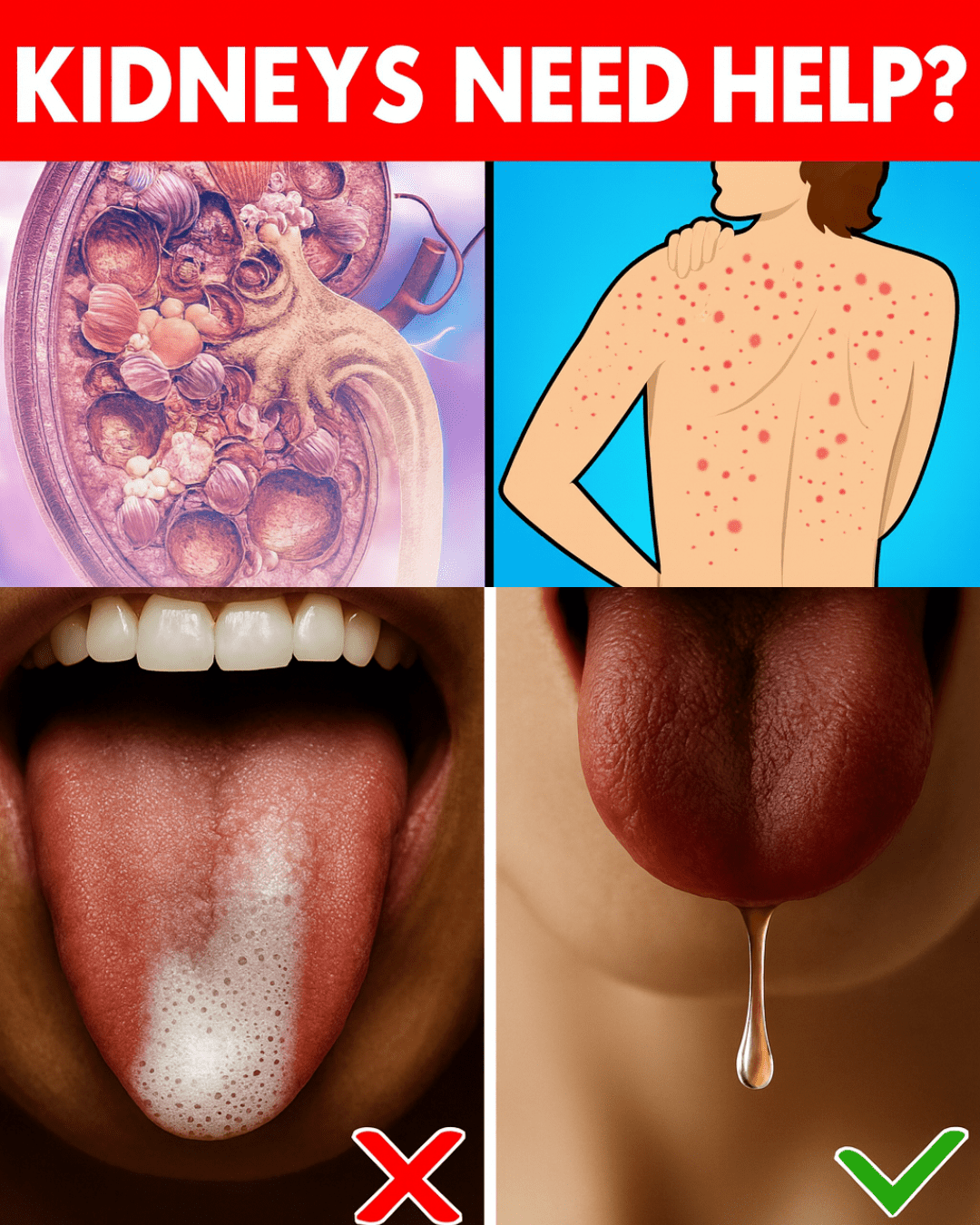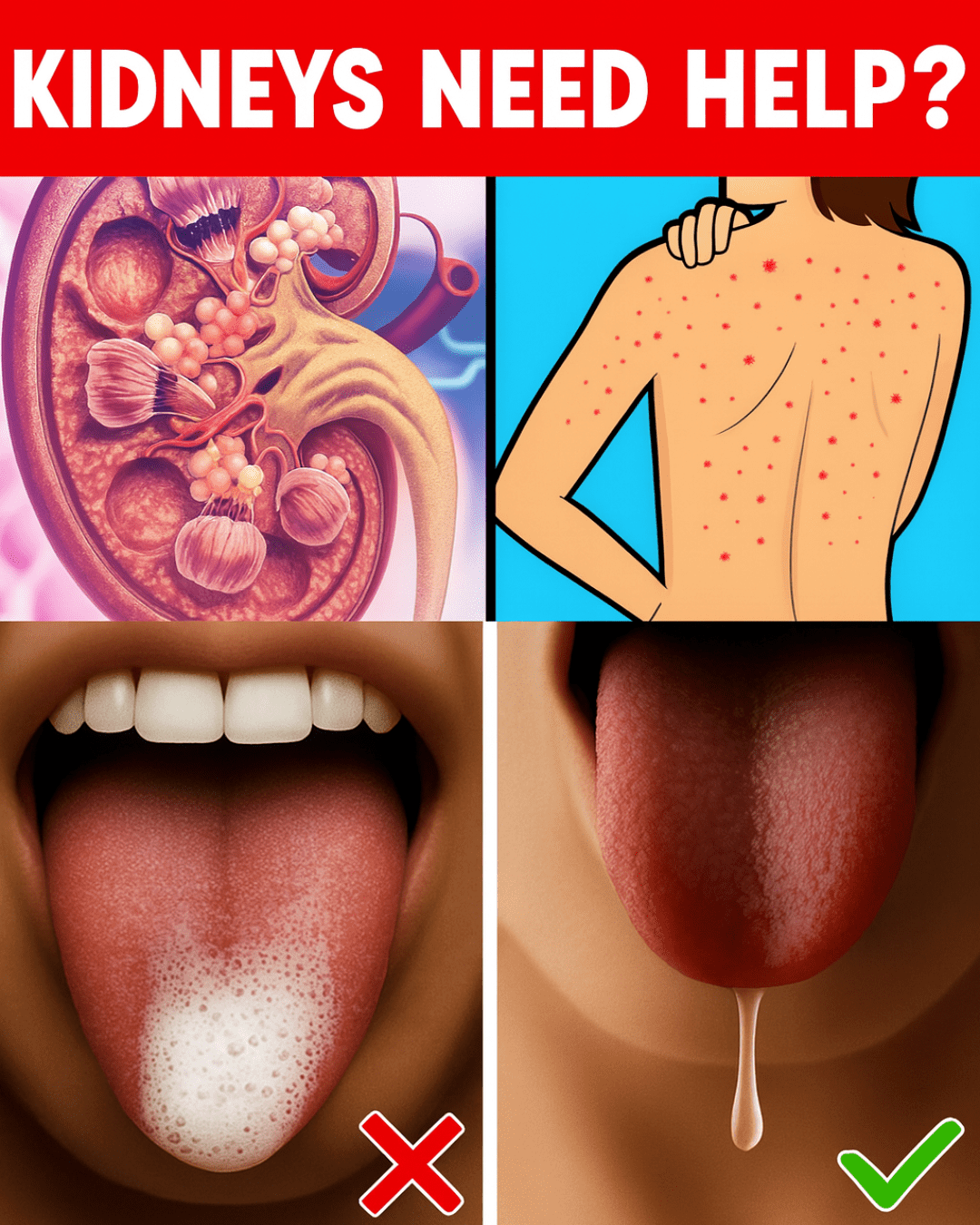Your kidneys are the silent heroes of your body—a pair of hardworking organs that function as your 24/7 filtration, fluid-balancing, and waste-removal system. When these vital organs begin to weaken, often due to conditions like diabetes or hypertension, they don’t send a sudden, obvious alarm. Instead, they send subtle, persistent signals that are routinely mistaken for “just aging,” stress, or a lack of sleep.

This pervasive silence is what makes Chronic Kidney Disease (CKD) so dangerous. With over 37 million Americans affected, ignoring these early, easily dismissed symptoms risks progression to kidney failure, requiring dialysis or a transplant. Early detection is not just important—it is the critical chance to manage, slow, or potentially halt the damage.
Are you experiencing persistent fatigue, unexplained swelling, or changes in your sleep? Read on to uncover the 9 early, essential warning signs your body is sending and learn the immediate steps you must take to protect your kidney health.
🩸 The Systemic Breakdown: Why Early Signs Emerge in Odd Places
Kidney dysfunction causes toxins (urea and creatinine), excess fluid, and waste products to accumulate in the bloodstream, destabilizing every major system in the body. These 9 signs are the body’s external proof that the internal filter is struggling.
1. 😴 Persistent Fatigue and Weakness
- The Mechanism: Failing kidneys produce less erythropoietin (EPO), a hormone vital for making red blood cells, leading to anemia (lack of oxygen transport). Simultaneously, toxins accumulate in the blood (uremia).
- The Sign: Feeling constant, deep exhaustion and physical weakness that is not relieved by rest. If you wake up tired or struggle with focus, this is a major warning.
2. 🦵 Swelling in Ankles, Feet, and Legs (Edema)
- The Mechanism: Healthy kidneys regulate fluid balance. When filtration declines, excess fluid remains in circulation and pools in the lower extremities due to gravity.
- The Sign: Noticeable puffiness or swelling in the ankles, feet, and legs, especially by the end of the day. This fluid retention is a classic indicator of kidney stress.
3. 🌙 Changes in Urination (Volume, Frequency, and Appearance)
- The Mechanism: Damaged tubules lose the ability to concentrate urine.
- The Sign: Frequent nighttime urination (Nocturia) is often one of the earliest symptoms. Other crucial changes include foamy or bubbly urine (indicating protein leakage) or reduced/dark urine output.
4. 🧐 Unexplained Itchy or Dry Skin
- The Mechanism: Kidneys maintain the balance of minerals and nutrients in the blood. When function declines, waste products and mineral imbalances (sometimes leading to high phosphorus) accumulate, triggering severe, persistent itchiness (pruritus) or dry rashes.
- The Sign: Skin that is chronically dry and itchy, often mistaken for simple dryness or allergies.
5. 🤢 Loss of Appetite and Nausea
- The Mechanism: Toxin buildup in the bloodstream directly suppresses appetite and affects the digestive system.
- The Sign: Experiencing frequent nausea or a persistent loss of appetite. This feeling of quick fullness can lead to unintentional, unexplained weight loss.
6. 👅 Metallic Taste or Bad Breath
- The Mechanism: The kidneys fail to excrete urea. This waste product builds up and is secreted into the saliva, where it breaks down into ammonia (uremia).
- The Sign: Complaining of a distinct metallic taste in the mouth or breath that has a faint, sharp, ammonia-like odor.

7. 🧠 Poor Concentration and Brain Fog
- The Mechanism: Toxin accumulation affects the central nervous system.
- The Sign: Difficulty concentrating, memory lapses, confusion, or severe “brain fog.” These neurological symptoms are critical signs of toxic overload and should not be dismissed as solely stress or aging.
8. 🌬️ Shortness of Breath (Dyspnea)
- The Mechanism: Two factors contribute: Fluid buildup in the lungs due to kidney failure, and anemia (low red blood cells) reducing the body’s ability to transport oxygen.
- The Sign: Feeling winded or short of breath after mild exertion (like climbing stairs), even without a history of lung issues.
9. 🩸 Uncontrolled High Blood Pressure
- The Mechanism: Kidneys regulate blood pressure via fluid balance and hormone release (renin). Damaged kidneys fail to regulate, leading to chronic hypertension.
- The Sign: Blood pressure readings that are consistently high or difficult to control with medication. High blood pressure is both a cause and a symptom of kidney damage, creating a dangerous feedback loop.
🛑 The Call to Action: Your Path to Kidney Wellness
Kidney disease can be a silent path to severe illness. If you notice two or more of these subtle symptoms persistently, do not delay seeking professional medical evaluation.
Immediate Action Plan:
- Consult Your Doctor: Schedule an appointment immediately and request specific tests for kidney function.
- Request Specific Tests:
- Serum Creatinine and GFR (Glomerular Filtration Rate): Measures how effectively your kidneys are filtering.
- Urine Albumin-to-Creatinine Ratio (UACR): Checks for protein leakage (foamy urine), which is the earliest sign of damage.
- Lifestyle Intervention: Take immediate steps to manage the two leading causes of CKD: control blood pressure and regulate blood sugar. Reduce sodium intake and avoid highly processed foods.
Takeaway: Your life depends on your body’s filter. By recognizing these 9 subtle signs, you gain the power to act early, slow the progression of kidney disease, and protect your long-term health.






